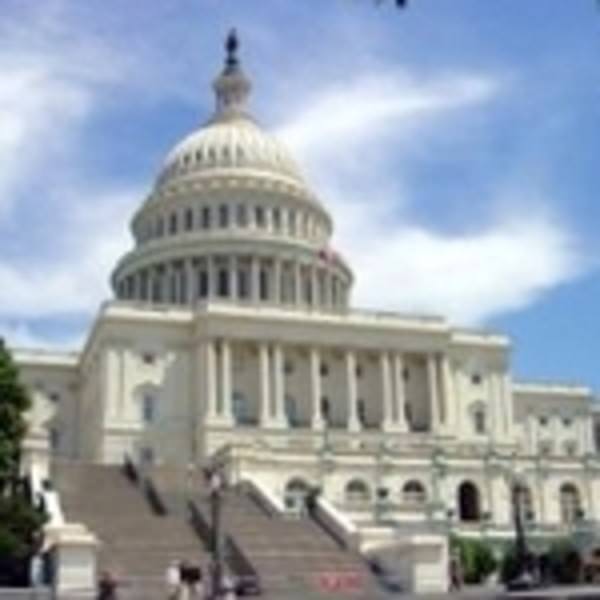The U.S. International Trade Commission would be the court of first instance for disputes brought by parties claiming that a Web site hosted offshore is trafficking in its intellectual property, in a draft of a bi-partisan bill released today by Sen. Ron Wyden (D – Ore.) and Rep. Darrell Issa (R – Calif.). The Online Protection and Enforcement of Digital Trade bill (whose acronym is somehow “OPEN”) is being offered as an alternative to the PROTECT-IP anti-piracy legislation which passed the Senate Judiciary Committee last May, but which has yet to come to a vote of the full Senate. The bill’s House counterpart, the Stop Online Piracy Act (SOPA), is currently being debated by representatives.

USITC is already the principal court for resolving intellectual property disputes between American and foreign companies, so certainly no one yet can fault the bill lack of precedent.
But while the SOPA and PROTECT-IP bills both would empower the Attorney-General to order DNS server hosts and Internet service providers to stop resolving the addresses of suspected pirate sites, the Wyden-Issa bill would instead have a Commission judge issue a cease and desist order against the proprietor of the site once the judge has found the proprietor guilty of infringing activity.
“The OPEN Act would combat the flow of infringing digital goods into the United States by expanding the International Trade Commission’s existing authority to enforce copyright and trademark infringement as it currently applies to the import of physical goods,” reads a statement from Rep. Issa’s and Sen. Wyden’s offices, issued today. “While downloading a movie from a foreign-registered site is akin to importing a good from a foreign company, U.S. trade laws have failed to keep pace with the digital economy and have yet to extend the protections that U.S. rights holders enjoy in the physical world to the online world. The OPEN Act would expand those protections and empower U.S. rights holders to petition the ITC to investigate cases of illegal digital imports just as they currently petition the ITC to investigate infringement cases involving physical goods.”
At the same time, the statement reads, the Wyden-Issa bill refrains from messing with the DNS system, while also providing what it characterizes as a clear definition of an infringing site, as opposed to SOPA’s phrase “rogue site” which some say is legally fuzzy. The initial draft of Wyden-Issa states that a foreign infringer “is accessed through a non-domestic domain name; conducts business directed to residents of the United States; and has only limited purpose or use other than engaging in infringing activity and whose owner or operator primarily uses the site to willfully engage in infringing activity.”
The SOPA bill (which takes some of its language from the un-voted-on COICA bill from 2010) would apply precedent in real estate law to enable the Attorney-General’s office to pursue the Web sites of unreachable foreign proprietors, seizing their domains much the same way the FBI currently seizes foreign assets of suspected counterfeiters. The Wyden-Issa language would take foreign piracy matters out of the Attorney-General’s hands almost entirely, employing the DOJ for consultation matters only, and reverting cases back to domestic authorities including the DOJ if it should be determined that the domain holder in question resides on U.S. soil after all.
Just like patent infringement cases today, piracy cases would be brought by individual complainants to the USITC. Conceivably the DOJ may act as a complainant on behalf of U.S. interests, although there’s no language in the current draft that expressly states this. The Administrative Law Judge there would be given the authority, under the current draft, to issue temporary restraining orders while a case is being heard. These would be similar to temporary injunctions that the USITC grants today against the import or sale of foreign goods alleged to infringe upon U.S. patents or trademarks.
But the lack of a means to disable a suspect site if its proprietors cannot be located, may become a topic of debate should Wyden-Issa be brought before a committee for markup. When a complaint is filed against a site, USITC would have the obligation to notify the site’s proprietors. It would use the e-mail or mail address listed on the site itself (which you don’t generally find on a pirate site); or, barring that, the mail address listed in the domain registry (which is often hidden or falsified); or finally, when all else fails, “any other such form as the Commission finds necessary.”
Just last October, the Federal Circuit Court of Appeals ruled that the USITC does have the authority to use its own means outside the U.S. to investigate cases of alleged unfair competition. Conceivably, that authority could also be extended to include investigations of illicit intellectual property trafficking outside U.S. borders.
The latest statements of opposition to SOPA and PROTECT-IP published this week, including from legal scholars, assert that the bills would have detrimental impacts on Americans’ free speech rights. But the new support group established to promote the Wyden-Issa bill, launched at KeepTheWebOpen.com, is noticeably refraining from invoking the free speech argument, perhaps in order to retain vital Republican support necessary for this language to be passed by the GOP-controlled House.
“The OPEN Act secures two fundamental principles,” the new site reads. “First, Americans have a right benefit from what they’ve created. And second, Americans have a right to an open Internet. Our duty is to protect these rights. That’s why congressional Republicans and Democrats came together to write the OPEN Act. But it’s only a start.”

















